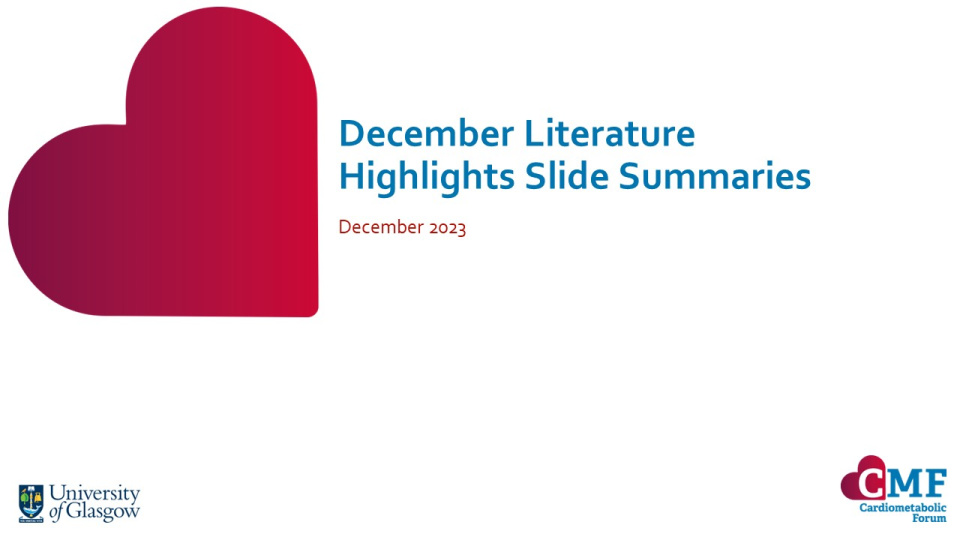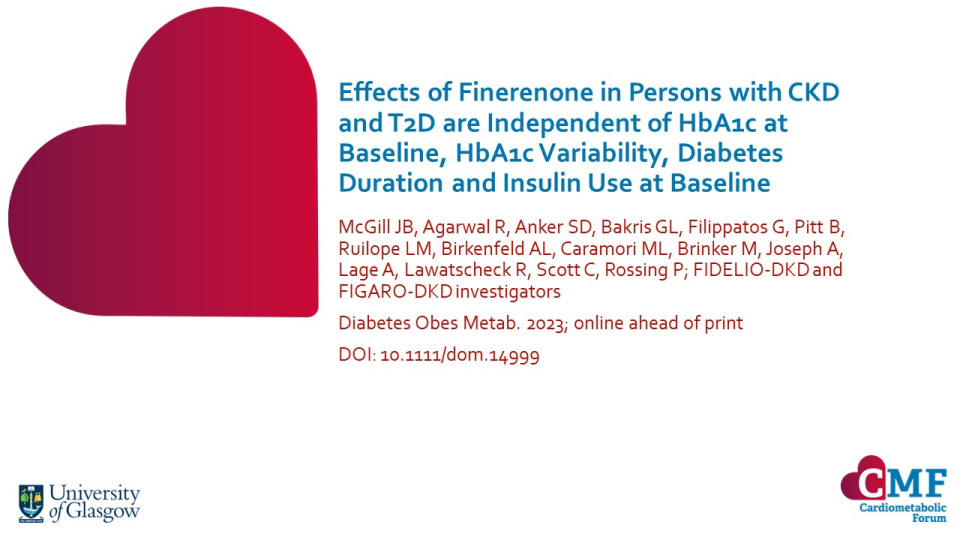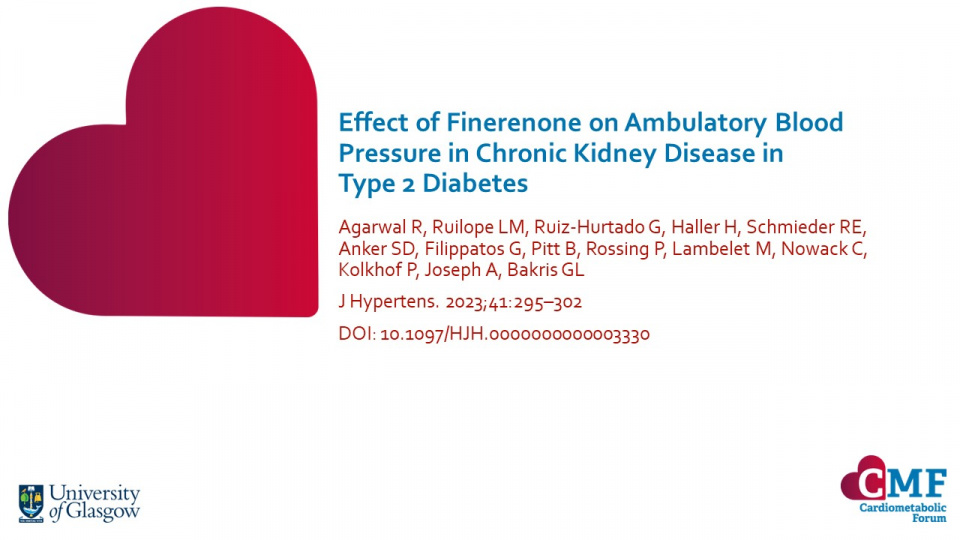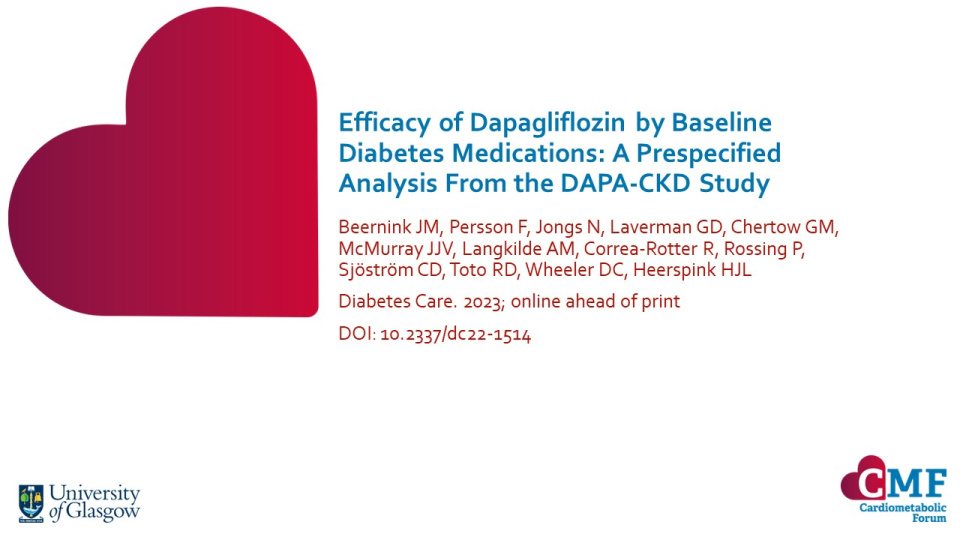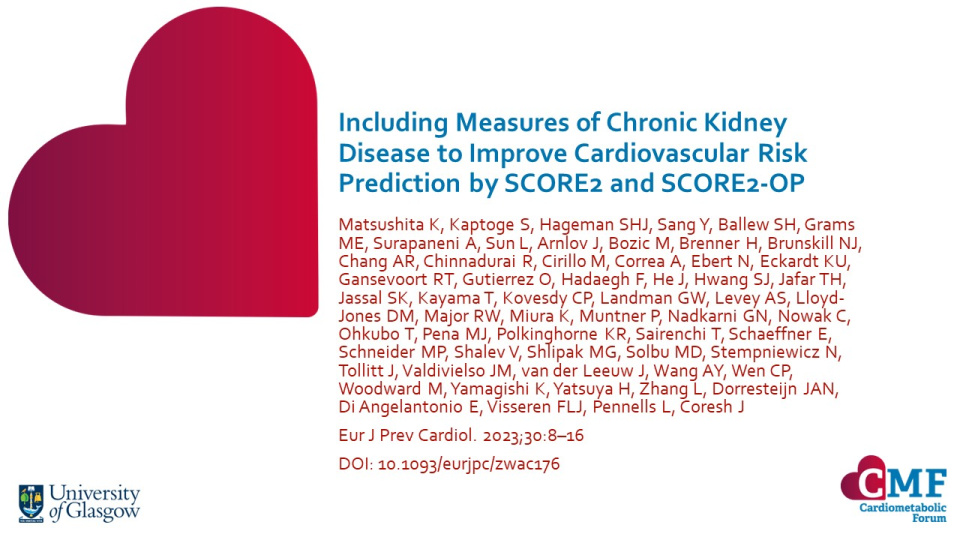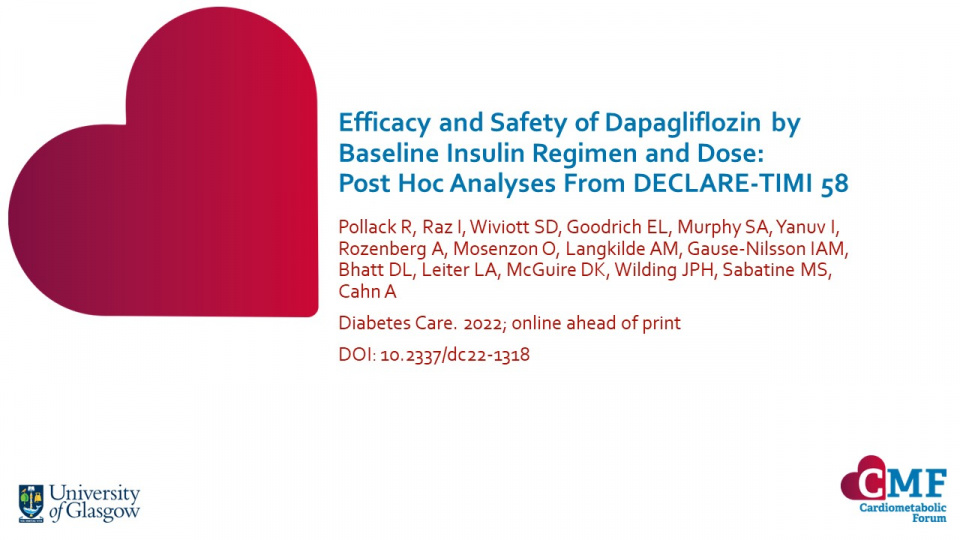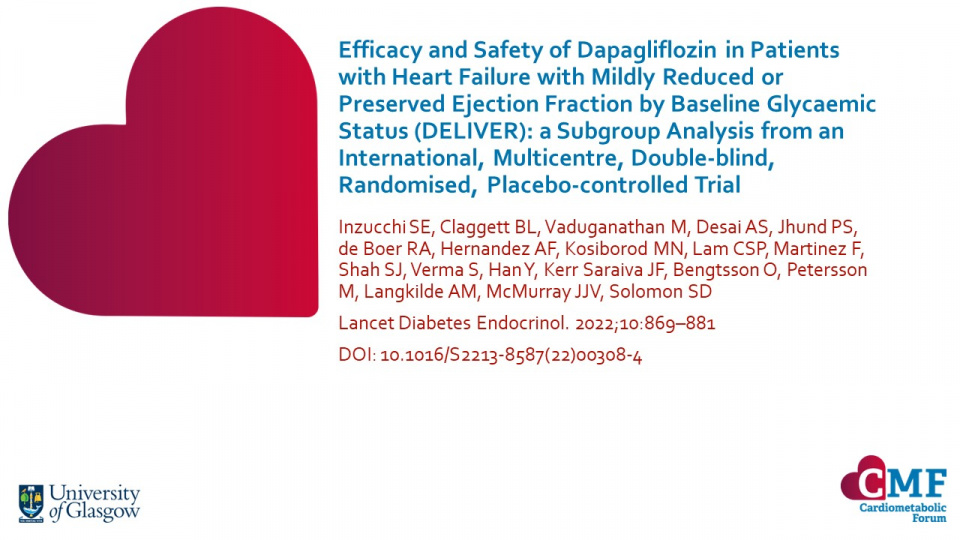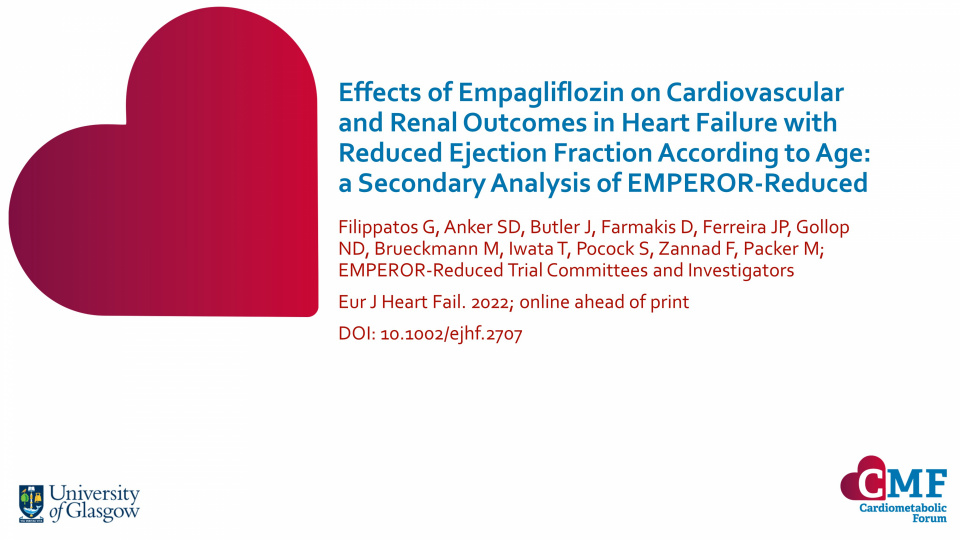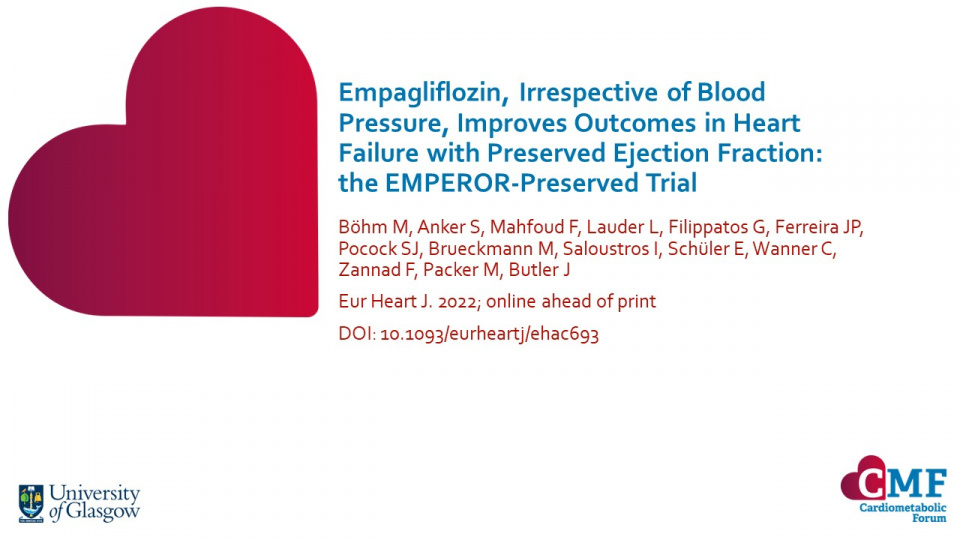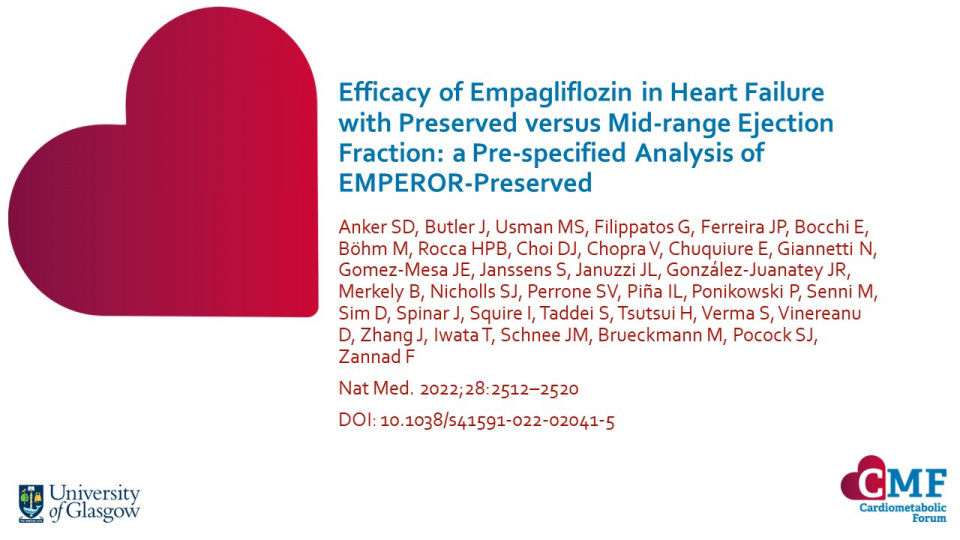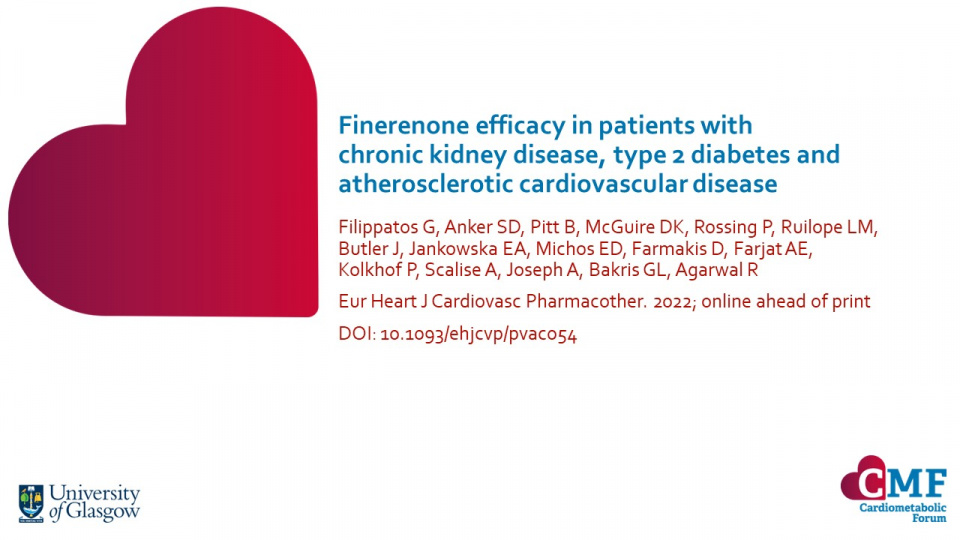Publications
Stay up to date with our literature reviews which are curated by experts to feature the most important publications released each month. Explore our publications for access to concise summary slides for your own use.
Effects of Finerenone in Persons with CKD and T2D are Independent of HbA1c at Baseline, HbA1c Variability, Diabetes Duration and Insulin Use at Baseline
Diabetes Obes Metab. 2023; online ahead of print DOI: 10.1111/dom.14999
Given the role of HbA1c, diabetes duration and insulin use in determining morbidity and mortality of CKD in T2D, it is important to investigate whether these factors modify the efficacy and safety of therapies that mitigate the cardiorenal impact of CKD in T2D. This post hoc analysis of the FIDELITY database evaluated the effect of finerenone by baseline HbA1c, HbA1c variability, diabetes duration and baseline insulin use on cardiorenal outcomes and diabetes progression.
Keywords:
Effect of Finerenone on Ambulatory Blood Pressure in Chronic Kidney Disease in Type 2 Diabetes
J Hypertens. 2023;41:295–302 DOI: 10.1097/HJH.0000000000003330
It has been postulated that the effects of finerenone on cardiorenal outcomes may be mediated primarily via non-haemodynamic pathways, but office BP measurements are insufficient to fully assess haemodynamic effects. A substudy of the ARTS-DN phase IIb trial was conducted to obtain further insights into the mechanism of action of finerenone by analysing 24-h ambulatory BP in patients with CKD and T2D.
Keywords:
Efficacy of Dapagliflozin by Baseline Diabetes Medications: A Prespecified Analysis From the DAPA-CKD Study
Diabetes Care. 2023; online ahead of print DOI: 10.2337/dc22-1514
Achieving optimal glucose control can be challenging in patients with T2D and CKD because impaired kidney function hampers the use of several oral or injectable glucose-lowering therapies (GLTs) and increases the likelihood of hypoglycaemia. This prespecified analysis from the DAPA-CKD trial evaluated whether the benefits of dapagliflozin in patients with T2D and CKD varied by background GLT number or class.
Keywords:
Including Measures of Chronic Kidney Disease to Improve Cardiovascular Risk Prediction by SCORE2 and SCORE2-OP
Eur J Prev Cardiol. 2023;30:8–16 DOI: 10.1093/eurjpc/zwac176
The 2021 ESC guideline on CVD prevention categorises moderate and severe CKD as high and very-high CVD risk status regardless of other factors like age and does not include eGFR and albuminuria in its SCORE2 and SCORE2-OP algorithms to predict CVD risk. Here, three CKD ‘Add-ons' to SCORE2 and SCORE2-OP were developed and validated: eGFR only, eGFR + urinary albumin-to-creatinine ratio (the primary Add-on), and eGFR + dipstick proteinuria.
Keywords:
Efficacy and Safety of Dapagliflozin by Baseline Insulin Regimen and Dose: Post Hoc Analyses From DECLARE-TIMI 58
Diabetes Care. 2022; online ahead of print DOI: 10.2337/dc22-1318
Limited data exist regarding the cardiorenal efficacy and safety of SGLT2i in patients treated with intensive insulin regimens including short-acting insulin or high insulin doses. This post hoc analysis of DECLARE-TIMI 58 examined the effects of dapagliflozin vs placebo among 7,013 insulin users at baseline, of whom 4,650 were on regimens that included short-acting insulin and 1,339 were receiving insulin >1 IU/kg.
Keywords:
Efficacy and Safety of Dapagliflozin in Patients with Heart Failure with Mildly Reduced or Preserved Ejection Fraction by Baseline Glycaemic Status (DELIVER): a Subgroup Analysis from an International, Multicentre, Double-blind, Randomised, Placebo-controlled Trial
Lancet Diabetes Endocrinol. 2022;10:869–881 DOI: 10.1016/S2213-8587(22)00308-4
Dapagliflozin was shown to be highly efficacious in patients with HFmrEF and HFpEF in the DELIVER trial. However, whether the benefits of dapagliflozin are observed across glycaemia categories has not been previously reported.
Keywords:
Effects of Empagliflozin on Cardiovascular and Renal Outcomes in Heart Failure with Reduced Ejection Fraction According to Age: a Secondary Analysis of EMPEROR-Reduced
Eur J Heart Fail. 2022; online ahead of print DOI: 10.1002/ejhf.2707
Results from EMPEROR-Reduced demonstrated that empagliflozin improved CV and renal outcomes in patients with HFrEF, but its efficacy and safety across patient's age is not well established.
Keywords:
Empagliflozin, Irrespective of Blood Pressure, Improves Outcomes in Heart Failure with Preserved Ejection Fraction: the EMPEROR-Preserved Trial
Eur Heart J. 2022; online ahead of print DOI: 10.1093/eurheartj/ehac693
Results from EMPEROR-Preserved demonstrated that empagliflozin improved CV and renal outcomes in patients with HFpEF, but its efficacy and safety with baseline SBP is not well established.
Keywords:
Efficacy of Empagliflozin in Heart Failure with Preserved versus Mid-range Ejection Fraction: a Pre-specified Analysis of EMPEROR-Preserved
Nat Med. 2022;28:2512–2520 DOI: 10.1038/s41591-022-02041-5
Results from EMPEROR-Preserved demonstrated that empagliflozin improved CV death and HF hospitalisation – the primary outcome – in patients with HF and LVEF >40%. This pre-specified analysis of EMPEROR-Preserved aimed to evaluate the effect of empagliflozin in patients with HFpEF (LVEF ≥50%) compared with patients who had HFmrEF (LVEF 41–49%).
Keywords:
Finerenone efficacy in patients with chronic kidney disease, type 2 diabetes and atherosclerotic cardiovascular disease
Eur Heart J Cardiovasc Pharmacother. 2022; online ahead of print DOI: 10.1093/ehjcvp/pvac054
Finerenone reduced the risk of CV and kidney outcomes consistently across the spectrum of CKD in patients with T2D, irrespective of prevalent ASCVD.

